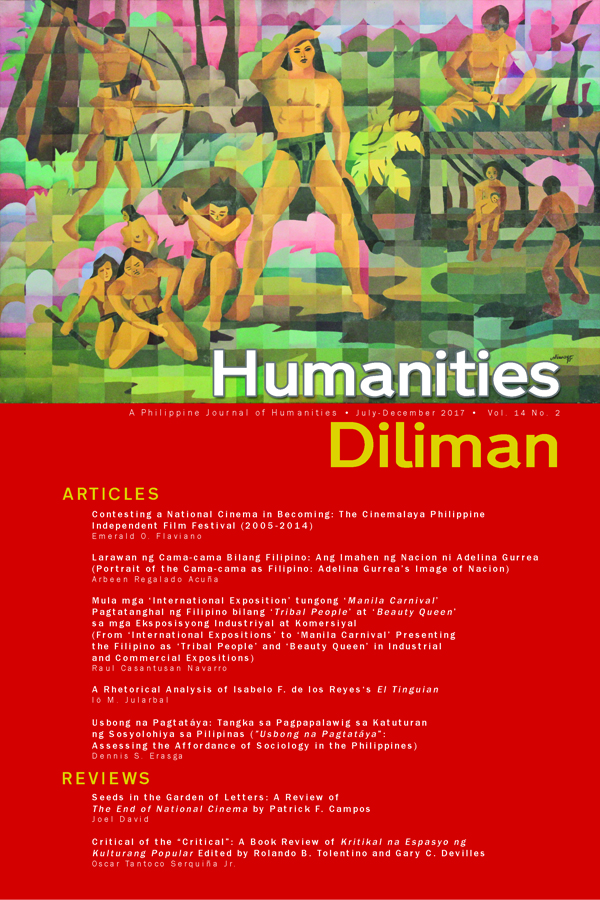Usbong na Pagtatáya: Tangka sa Pagpapalawig sa Katuturan ng Sosyolohiya sa Pilipinas (<em>Usbong na Pagtatáya</em> Assessing the Affordance of Sociology in the Philippines)
Abstract
The affordance of sociology implicates not only the “functionality” (Fil. gamit) element, but embraces the dimension of “relevance” (Fil. katuturan). Henceforth, the germaneness of sociology as a discipline in exploring Philippine social realities and in making sense of the Filipino actions and interactions can no longer be gauged in terms of casual invocation/legitimation of its (Western) discursive trappings. The usefulness of sociology can only be realized if it is used as a perspective and such requires a reflective stance on the whole praxis of appropriating the practices, protocols, and principles of the Eurocentric sociology. As a corollary issue, the paper investigates the ambivalence that characterized the disciplinal identity of sociology—an identity simultaneously forged by the literary and scientif ic traditions during the Industrial Revolution period. Filipino sociologists, however, can exploit this ambivalent identity to launch a sociology that is both faithful to the demands of the individual experiences of Filipinos and fateful to their collective history. The Filipinos’ pakikipagkapuwa is used as a tool to lift the ideological veil that shrouds the very practice of “theorizing” in the social sciences in the country, and at the same time, to present an effective example of the unique affordances of an autonomous sociology that thrives in the Philippines.
Keywords: Reflective sociology, Sociology, social theory, literature, pakikipagkapuwa


